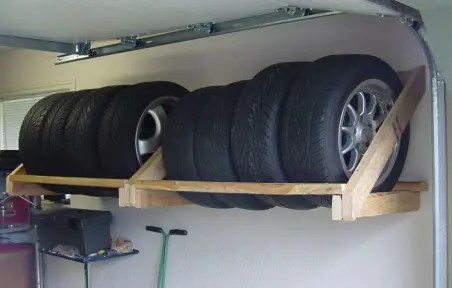
Spare tires are common in households and garages of people who love their vehicles or have more than one vehicle. Practical drivers also buy spare tires on a deal, and in any case, it is better to be prepared for all seasons.
However, keeping tires at home is not a simple task. Tires require proper care, and you must keep them in a friendly environment according to their qualities and composition. This way, your tires will not “rot” or get damaged due to lack of care.
If you are spending money on buying extra tires, it is better not to let it waste by not taking care of the tires. It is ideal to keep your tires at home, but it comes with certain precautions. Anyone can take these precautions since they are simple and practical.
In this article, we will specifically be talking about storing your vehicle tires at home. But first of all, it is essential to talk about some preventive measures.
How to store tires at home safely
When people keep tires at home, there are many factors they should consider. To keep tires in suitable conditions, we should consider their state, storage temperature, humidity, and other factors that affect their lifespan.
Most people throw their tires in the storage room, which is one of the easiest spaces to keep tires in, but it is not ideal. Some even keep their tires in the trunk of the car.
To preserve your tire investment, you should avoid anything that can damage their condition. You can keep tires in the trunk of your car, which seems logical, but there are some precautions you should take. Let's talk about the protection and tips.
Tips to store tires at home
- Keep the tires clean
The first thing that comes to mind when you think about keeping tires in good condition is cleanliness.
You should clean tires with soap and water. It will get rid of all the dirt and grease that is collected on the tires. The dirt may affect the quality, so it is better to clean the tires before storing them.
Make sure when you clean your tires with water and then dry them. Keep your tires in a dry environment because keeping them wet can affect their drift quality as well.
- Keep your tires at room temperature
Try to store your tires at room temperature. Too much heat can cause tires to melt and wear out without ever using. Keep them indoors.
Harsh weather is not ideal for tires, and it can damage their condition.
- Store tires in a certain position
If you are storing tires on the wheel, they should be laid down and not upright. Do not stack them either. Keep on changing the sides monthly. This way, all sides are equally pressed, and you will not experience the flattening of tires.
- Buy spares from professional dealers
Before using, you should have them professionally inspected. There might be something wrong with your tires that you do not know of, professional help is always better to have, and you will not regret it. It is better to invest some time than drive unsafely.
Conclusion
It might sound a lot, but the tips mentioned above are very cost-friendly. Little precautions can help prolong the tires’ lifespan and preserve the money you spent on your tires.
Same articles

Understanding Vehicle Inspection and Verification Services: Why They Matter for Every Driver
GuidesVehicle inspection and verification services are an essential but often overlooked part of keeping roads safe and cars legally compliant. Most people only think about inspections when it’s...
KLIFEX Brand Overview: High-Quality Automotive Repair Kits for Affordable Repairs
GuidesThe automotive aftermarket has long needed solutions that combine reliability, durability, and affordability. Many car enthusiasts and services are looking for a way...
Fast, Reliable Vehicle Emissions & Inspection Services Made Simple
GuidesFast, reliable emissions and inspection services are essential for keeping vehicles road-ready, compliant with environmental regulations, and safe for daily driving. If you’re looking for quick...

